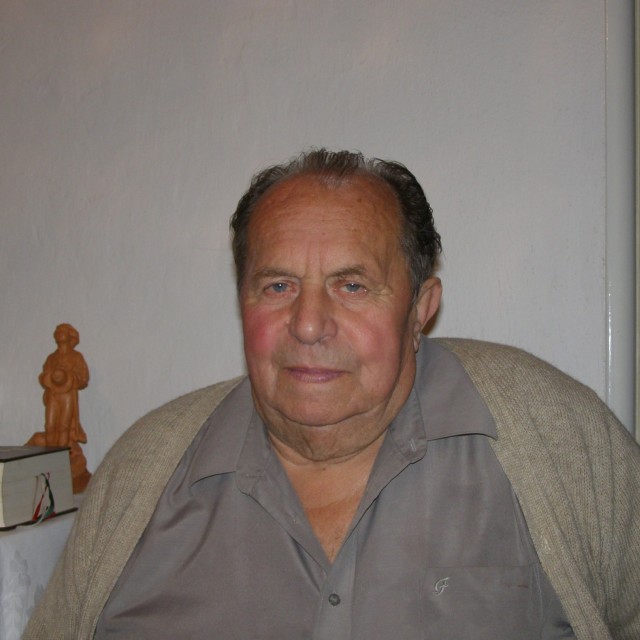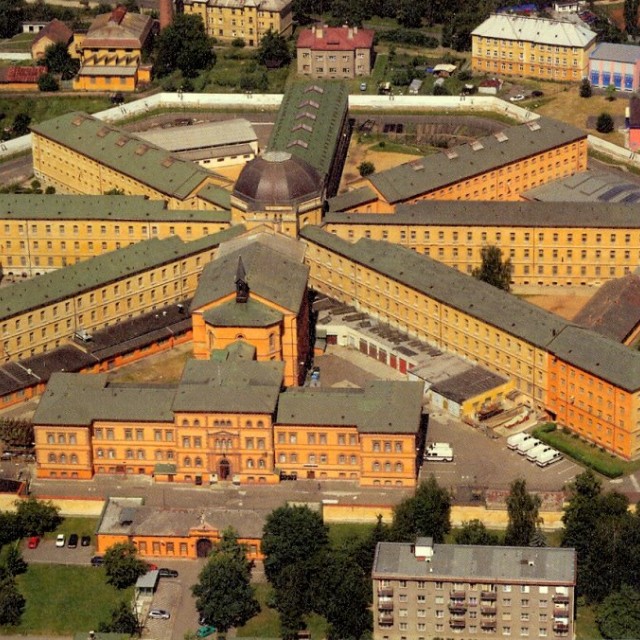Being Beaten with a Bullwhip Cannot Be Stand
“Bory (prison in Pilsen) was the worst,” remembers the priest Antonín Huvar who went through thirteen different communist prisons in the 50s. The wardens´ inhuman treating of prisoners was supported by the prison authorities. Antonín Huvar does not like to think back on particularly cruel beating with a bullwhip of warden Walma. “In one hand he was holding a gun and the second one a bullwhip. It cannot be stand. The truncheon, it is a piece of cake. They beat me with a truncheon, after that you have such black weals. It disappears in three months. But beating with a bullwhip can be mortal. And especially when you are beaten in the same wound before it is healed. It could not be stand.” Antonín Huvar suffered from the results of beating for the rest of his life. “The wardens, they are lechers, they did not have even a piece of humanity. I remember them beating a boy who lived me to death. And their wives that lived opposite the prison in the block of flats, they heard it and yelled: ‛Beat them, the bastards who wanted to undermine our republic, give them more, give them more.’ Finally they killed the boy.”
Hodnocení
Abyste mohli hodnotit musíte se přihlásit!
Trasy
Příběh není součastí žádné trasy.
Komentáře

Antonín Huvar
Antonín Huvar was born in 1922 in Albrechtičky, North Moravia. He died in 22.9.2009 in Novy Jicin. In 1942 he passed the graduation exam and entered the seminary in Vidnava. In 1947 he was ordained a priest and started his ecclesiastical service in Vizovice, where he also participated in the activities organized for the local youth. After February 1948 he participated in the distribution of pamphlets mocking the new regime, supported the boy scout organization and criticized communists in his sermons. He was arrested in September 1948 and transported to Zlín. After a few days he was taken to Uherské Hradiště where he was interrogated also by the infamous Alois Grebeníček. The interrogations carried on for two months and the trial took place in November. Huvar was judged at the State Court in Uherské Hradiště as a head of an ‘organized' group whose members in most cases never even met. He was sentenced to ten years in prison in accordance with the law on the protection of the Republic from 1923. He served the whole sentence in labor camps at Libkovice, Jiřetín, in prison at Bory, in the uranium mines at Rtyně v Podkrkonoší and in nine other penitentiary institutions. At Bory he shared a cell with general Heliodor Píka, sentenced to death. He left the prison walls of Valdice (Kartouzy) in 1958, returned to Albrechtičky to his mother and worked for nine years as a fish warden in the area around his native village. In 1967 he regained the state permission and began preaching in Fulnek, North Moravia, where he also tried to recreate the boy scout organization. In the Normalization period, Huvar lost the permission again and worked in the Fulnek basilica as an organ player for thirteen years. In 1982, he regained the permission for a second time. He began organizing the local youth and initiated several activities that helped to save and build church buildings in the area including the parish church in Orlová. Until today Antonín Huvar is a priest at a parish in Vražné, a small village at the foothills of Jeseník, where he bought a house 25 years ago. He also participates in literary activities and holds lectures for the youth. In 1998 he was decorated for his contributions to the development of democracy, humanity and human rights with the Order of Tomáš Garrigue Masaryk of the III. class.









